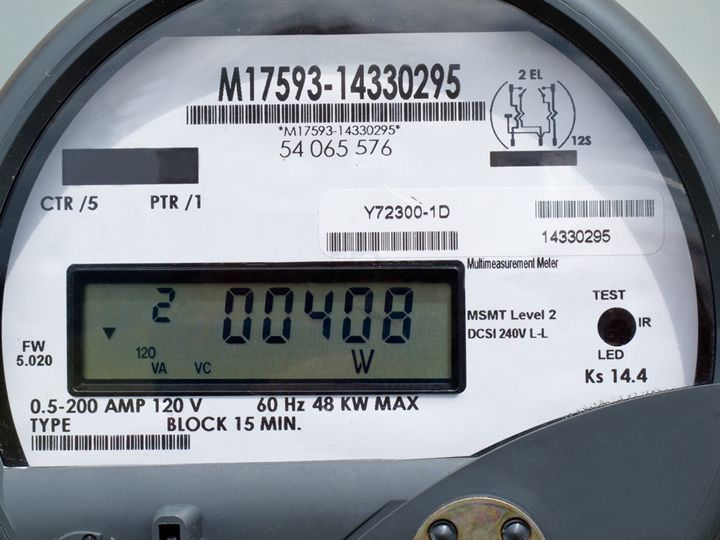Smart meters are changing everything for utilities and their customers! These meters let you see how much energy you're using almost in real-time. But many power companies still use old-fashioned maximum demand surcharge rate plans based only on the monthly peak usage.
![Can Traditional Maximum Demand Keep Up in a Smart Meter World?]() Can Traditional Maximum Demand Keep Up in a Smart Meter World?
Can Traditional Maximum Demand Keep Up in a Smart Meter World?

Tina Reynolds | CLOU GLOBAL
Smart meters are changing everything for utilities and their customers! These high-tech meters let you see how much energy you're using almost in real-time. But many power companies still use old-fashioned maximum demand surcharge rate plans based only on the monthly peak usage. As more people go solar or join programs to cut energy use during peak times, those plans don't make much sense. Let's look at how smart meter data can lead to better rates.
New Rate Plans That Make the Most of Smart Meters
Instead of peak charges, smart meters allow creative new rate structures. These rates encourage shifting usage away from short spikes in demand across the grid. Some examples:
- Critical peak pricing
Higher rates for limited days when everyone's AC is blasting. Get a heads-up to dial back non-essentials. - Time-of-use rates
Prices change based on predictable busy hours rather than your personal monthly peak. E.g. run the dishwasher after 9pm to save. - Demand charges from multiple intervals
Not just your highest peak, but your top 5 or 10 usage spikes. This smooths the impact of that one time you cranked the aircon and every device in the house. - Bring-your-own-device programs
Utilities share energy data you can integrate into smart home tech and apps. Now you're in the driver's seat managing use.
These next-gen rates enabled by smart meters encourage gradual, coordinated shifting of energy use. They also let customers better understand and control their consumption.
Giving Customers More Control and Options
Instead of one-size-fits-all rates, leading utilities now offer choices tailored to different users. Voluntary rate plans allow you to pick what meets your needs and values best.
Homeowners may opt for simple time-of-use pricing to charge their EV overnight, or a program that automatically adjusts major appliances to save during peak events. Small biz owners get rates making it easy to schedule equipment use after hours. Large companies control costs through programs that reward cutting energy use during critical peaks.
When rates fit your lifestyle, you'll be more satisfied. Options that let you shift use to times with cheaper and cleaner energy also avoid blackouts and lower environmental impacts. Pre-pay and post-pay choices enabled by smart meters give you more visibility into your bill too. The right rates customized for every customer helps build loyalty and efficiency.
Updating Demand Charges for the Solar Age
Rooftop solar, batteries and on-site power generation are booming. These systems help cut peak usage and costs. But old-school demand charges spread out the payback time. Utilities need rates that fairly reward efforts to minimize peak impacts with local power solutions.
Some updated demand charge ideas:
- Don't include rooftop solar in demand calcs
- Lower thresholds to match solar+storage users' load
- Apply charges only during peak periods
- Reward customers whose local power exceeds baseline peaks
- Share real-time usage and on-site performance data
Updating demand charges to reward local capacity builds collaboration. It maintains reliability as homes and businesses generate their own power. It also unlocks new revenue by expanding demand response options.
Takeaway
Smart meters and distributed power sources are transforming energy use. Rigid peak demand charges don't make sense any more. Creative new rate structures enabled by smart data empower customers with options, control, and incentives to shift usage gradually.
Utilities that update demand charges to reward local solar, batteries, and load management will build customer relationships. They'll also maintain reliability and efficiency as homes and businesses generate more of their own power. The future is rates that fit your lifestyle, reward conservation, and give you tools to manage costs – not outdated one-size-fits-all charges.
At CLOU, our advanced smart meters, comprehensive AMI solutions, and scalable energy storage systems are at the forefront of supporting utilities and consumers alike in making this transition. These technologies ensure that managing energy is not only about meeting needs, but also about maximizing efficiency and sustainability. If you have any inquiries or need further information about our smart meters, AMI solutions, and energy storage systems, please do not hesitate to reach out to us. We are here to assist you and welcome your valuable thoughts and comments.
Until then, keep shining bright like a solar panel on a sunny day!
The content & opinions in this article are the author’s and do not necessarily represent the views of AltEnergyMag
Comments (0)
This post does not have any comments. Be the first to leave a comment below.
Featured Product

